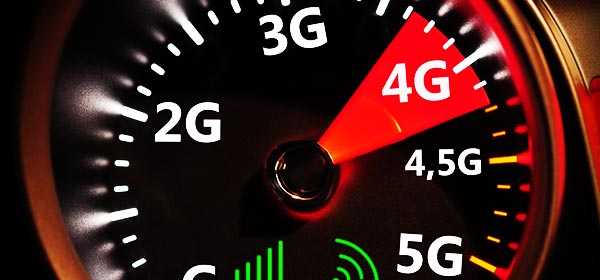According to the latest quarterly State of the Internet report published by Akamai Technologies, Australia has, over the past few years, dropped to 48th place in global average broadband connection speed rankings. Australia has been steadily falling further down this list, even as the rollout of the National Broadband Network (NBN) continues.
According to another report on Australia’s internet speeds, published by wireless mapping company OpenSignal – State of Mobile Networks: Australia, what Australia lacks in the way of overall connected internet speeds it makes up for with its mobile data capabilities.
The report suggests that Australia now ranks inside the top 10 for 4G speeds and the top 20 for 4G availability, with 3G speeds also exceeding global averages. Most notably, the report identified that Australia is actually too far ahead when it comes to network innovation, with both Telstra and Optus already deploying LTE-Advanced networks, which are capable of speeds faster than is accessible by current smartphone technology.
The report compared Telstra, Vodafone and Optus on several criteria, with the most important being 4G download speeds and 4G availability. Telstra was the clear winner, boasting the fastest 4G download speeds and equal highest 4G availability of any carrier. Vodafone came in a close second ahead of Optus.
Read more at www.opensignal.com
Read more at www.delimiter.com.au
Opinion: Telcos do the heavy lifting
Australia was ranked 30th in global average broadband connection speed rankings just under three years ago. The NBN was being rolled out and further improvements were expected. We now find ourselves halfway through 2016 sitting 48th on the global rankings list, with further slippage expected in coming quarters, as the rest of the world implements and upgrades faster than we can through current projects.
Where the Government has failed to implement timely improvements to internet speeds through the NBN project, the cashed-up telcos have continued to lead the way through mobile innovation. With the introduction of the NBN, a key source of income will be taken away from the Telstras and Optuses of the world, so the telcos are forced to innovate and capture other markets.
It’s pleasing to learn just how far advanced our mobile networks really are. The OpenSignal report recorded average mobile data download speeds of 17.1 Mbps from Telstra services. As a comparison, this is more than double the overall average recorded download speeds for other broadband connections within Australia.
The NBN, once delivered to every household in Australia, will be a step forward for internet speeds in this country. Until then, with more than 50 per cent of internet usage now being conducted on mobile devices, Australia’s ability to continue to innovate in the mobile data space is key and we seem to be safe with healthy competition in the marketplace.
Should more be done to hasten the implementation of the NBN? Do you support the Federal Opposition’s election promise of $2 billion additional investment in the NBN for ‘fibre to the home (FTTH)? Do you use your mobile device because your fixed-line connection is so slow?
Related articles:
NBN cost blowout
NBN rival to launch in 2016
Internet prices to fall

